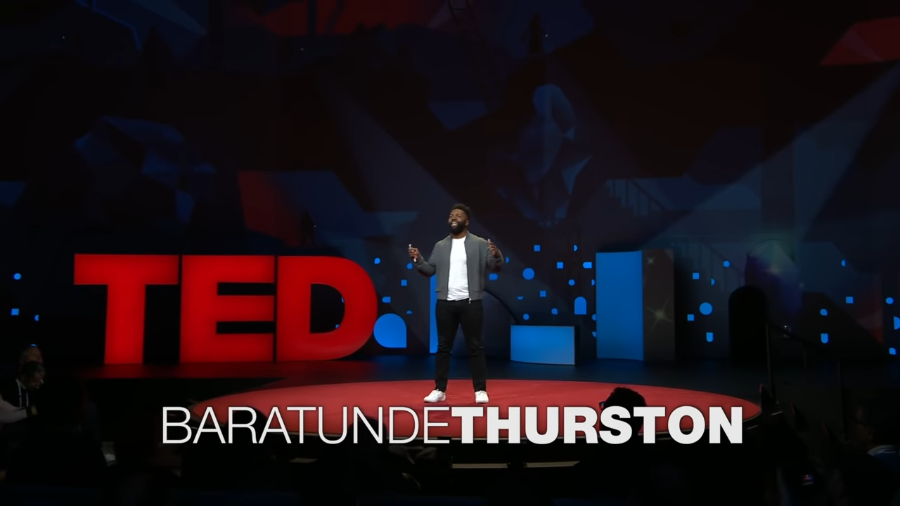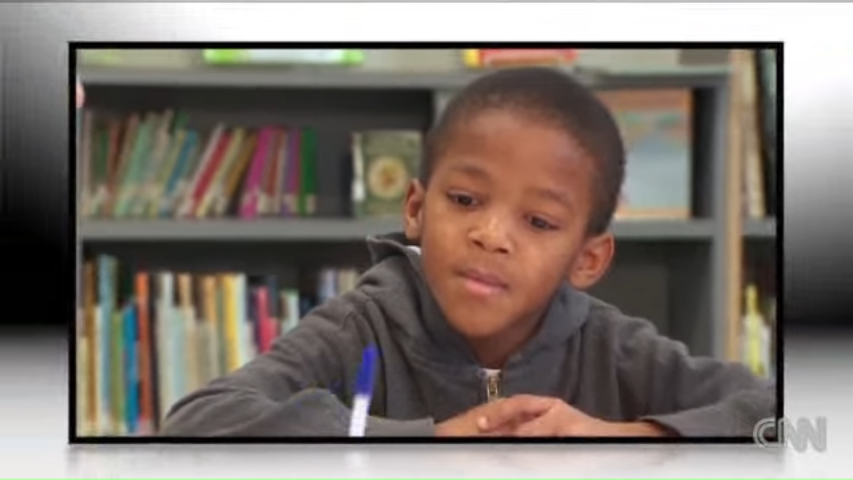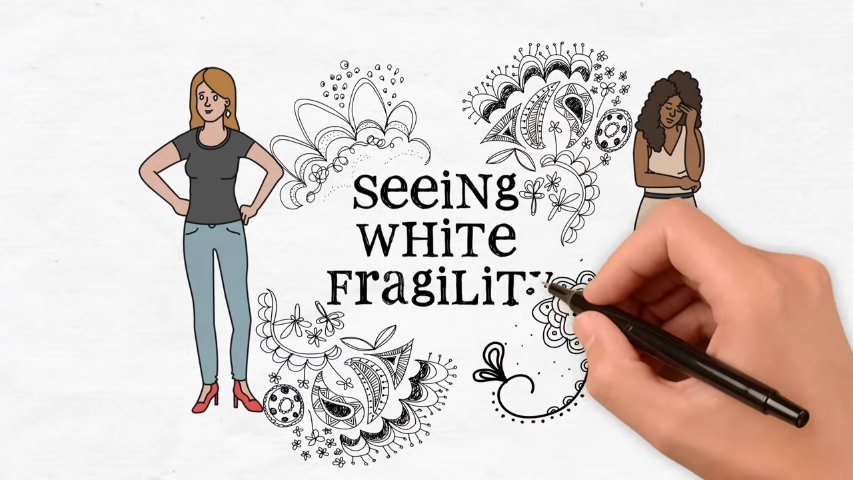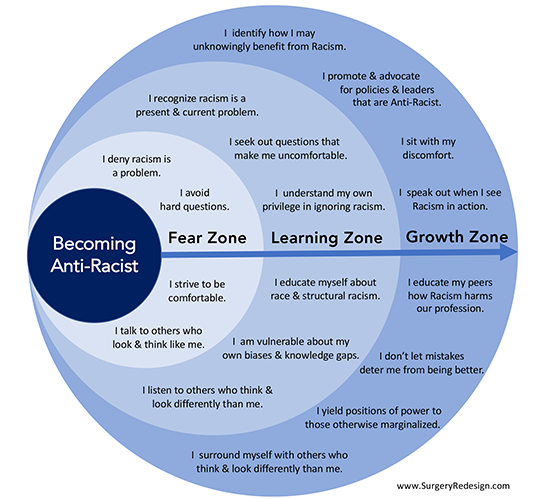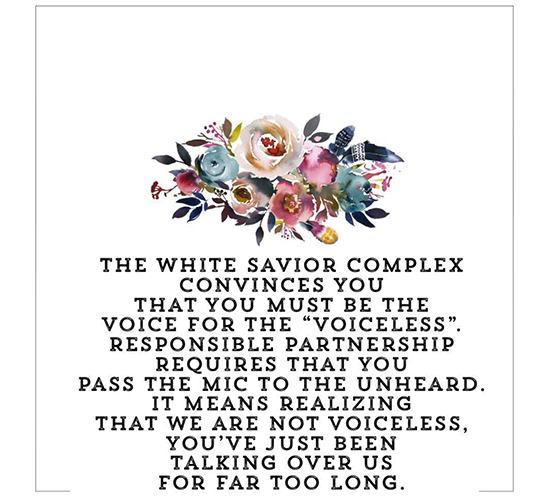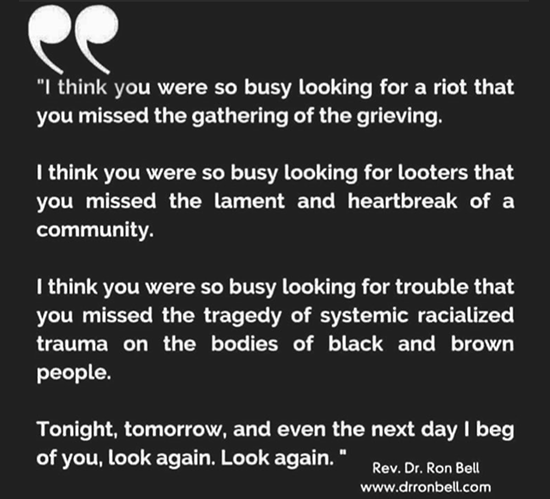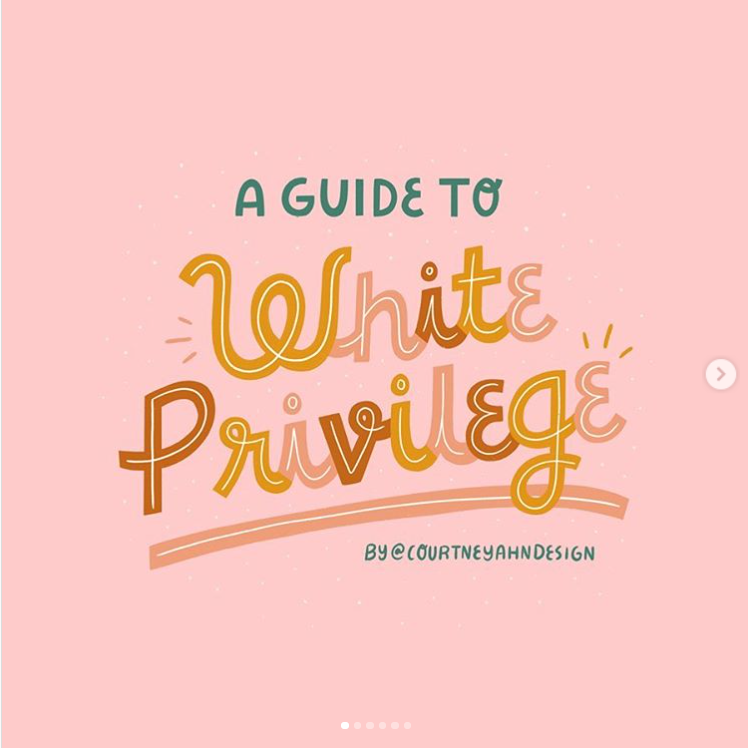“Whether bad or good, whether justified or unjustified, our beliefs and attitudes can become so strongly associated with the category that they are automatically triggered, affecting our behavior and decision making. So, for example, simply seeing a black person can automatically bring to mind a host of associations that we have picked up from our society: this person is a good athlete, this person doesn’t do well in school, this person is poor, this person dances well, this person lives in a black neighborhood, this person should be feared. The process of making these connections is called bias. It can happen unintentionally. It can happen unconsciously. It can happen effortlessly. And it can happen in a matter of milliseconds. These associations can take hold of us no matter our values, no matter our conscious beliefs, no matter what kind of person we wish to be in the world.” ⏤Jennifer L. Eberhardt, Biased
GET STARTED
Watch and read these 4 short introductory videos and articles on privilege and bias.
1
Understanding Our Privilege
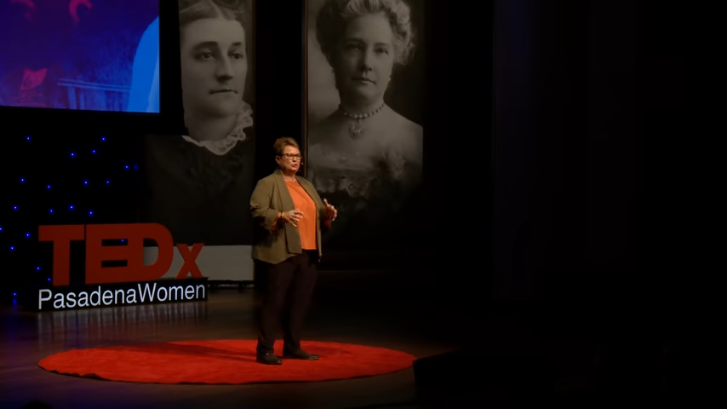
University Chancellor Susan E. Borrego reflects on her life as an emancipated minor and dissects the emotionally charged conversation surrounding race relations in the United States. This raconteur uses her powerful first-person account of “White Privilege” and “Black Lives Matter” to underscore the responsibility each one of us has to bring about change.
[Video: 12:48]
3
Implicit Bias
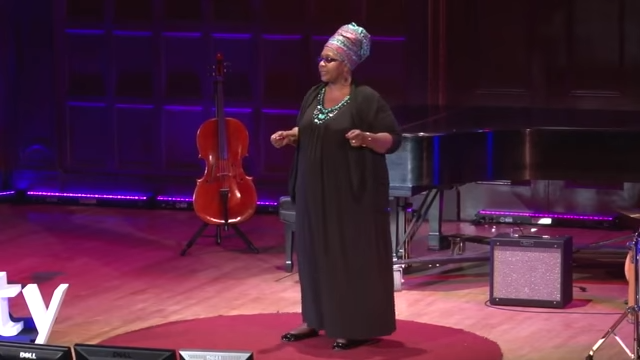
Everyone makes assumptions about people they don’t know. Melanie Funchess of the Mental Health Association will teach us to recognize these assumptions and work toward a common understanding.
[Video: 16:12]
2
tWitch on Privilege
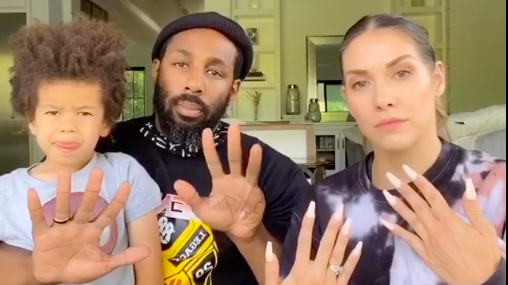
Stephen “tWitch” Boss, the DJ on The Ellen DeGeneres Show and a star on So You Think You Can Dance, has built a major following on TikTok with his wife (and fellow SYTYCD star) Allison Holker Boss. One of the couple’s videos has gone viral for the way it simply and perfectly explains white privilege. In the video, the couple each holds up 10 fingers. As the song plays and Big Mamma reads off statements, they put down a finger for each one that is true for them. While tWitch, a Black man, puts his finger down for every single one, Allison, a white woman, only does for the final statement. It illustrates plainly the privileges she has had as a white person in one powerful video. [Video: 1:01]
4
News Media Spreads Myths About Black Families
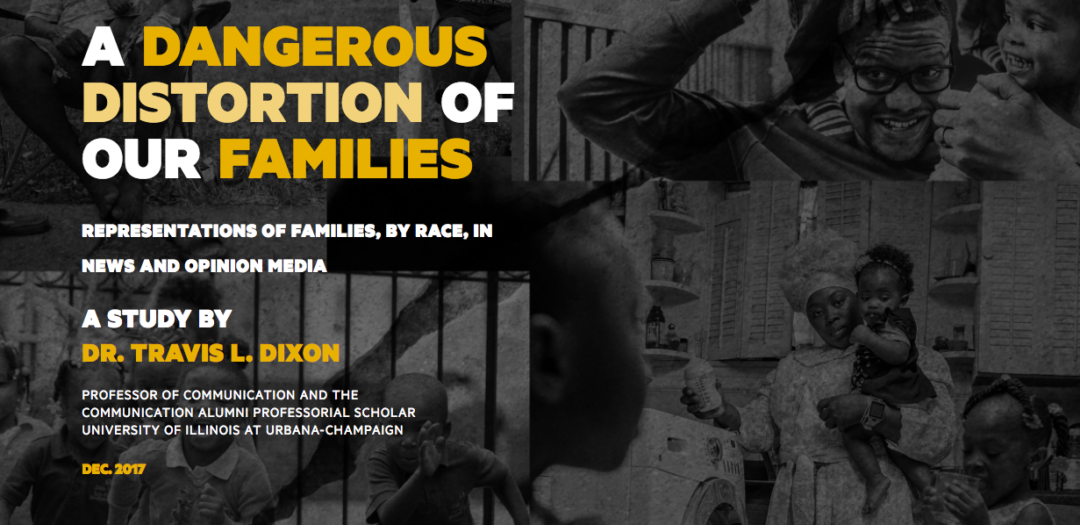
This study examined representations of families, by race, in national and local news and opinion media coverage–on television, in print and online. The findings of the study indicate that news and opinion media do, in fact, perpetuate inaccurate representations of Black families across several different areas of coverage.
[Summary approx. 3 min to read; full report approx. 2 hours to read.]
GO DEEPER
There are many fantastic resources to help educate us on privilege and bias in America. Consider some of these additional resources to grow in your knowledge and understanding.
a
Videos
How Do We Overcome Our Biases? — We all have unconscious biases, and we overcome them by walking boldly toward them. [Video 17:41]
How to Deconstruct Racism, One Headline at a Time — Baratunde Thurston explores the phenomenon of white Americans calling the police on black Americans who have committed the crimes of … eating, walking or generally “living while black.” In this profound, thought-provoking and often hilarious talk, he reveals the power of language to change stories of trauma into stories of healing — while challenging us all to level up. [Video: 16:50] [Extra video after talk: 2:07]
White Men: Time to Discover Your Cultural Blind Spots — White men rarely, if ever, are required to examine their own culture. In this timely and provocative talk, Michael Welp, PhD, co-founder of White Men as Full Diversity Partners speaks to his own experience becoming conscious of his white male culture, bias, and privilege as key tools to effective partnership across difference. [Video: 16:47]
Kids Speak Their Minds About Race — In a special report by Anderson Cooper, kids give honest feedback on racial and social issues. [Video: 6:25]
Uncomfortable Conversations with a Black Man: White Allergies — Matthew McConaughey joins Emmanuel Acho as they discuss racial issues impacting our country. [Video: 12:58]
Deconstructing White Privilege with Dr. Robin DiAngelo — DiAngelo discusses whiteness as a racial identity and the concept of White Fragility, which is a state in which even a minimum amount of racial stress becomes intolerable, triggering a range of defensive moves. These moves include outward display of emotions such as anger, fear, and guilt, and behaviors such as argumentation, silence, and leaving the stress-inducing situation. [Video: 20:01]
Seeing White Fragility — This video provides a crash course in how to identify and overcome white fragility in order to a) improve our racial literacy, b) become better allies, and c) amplify black and brown voices in the interest of achieving equality and justice for people of color. [Video: 6:23]
What Happens When I Try to Talk Race with White People — You can choose not to see the sky, but it exists. That’s how Renni Eddo-Lodge responds when somebody tells her they don’t see race. Trying to raise the topic in white-dominated social circles often led her to an immediate shutdown, one that might spring from others’ fear of being wrong, she says. [Video: 3:25]
Articles
White Privilege Checklist — This list is an excerpt from Peggy McIntosh’s essay, “White Privilege: Unpacking the Invisible Knapsack,” which demonstrates the daily effects of having white privilege. [Article: approx. 6 min to read]
What Is White Privilege, Really? — Recognizing white privilege begins with truly understanding the term itself. [Article: approx. 14 min to read]
The Many Ways White Parents Benefit From White Privilege, and How That Can Change — Part of being a good white ally,beyond sharing an anti-racist article on social media, educating yourself, and donating, is understanding there are ways racism shows up in your own life that you might not yet realize. [Article: approx. 8 min to read]
In Heroin Crisis, White Families Seek Gentler War on Drugs — When the nation’s long-running war against drugs was defined by the crack epidemic and based in poor, predominantly black urban areas, the public response was defined by zero tolerance and stiff prison sentences. But today’s heroin crisis is different. [Article: approx. 12 min to read]
Riots in Philly: A Glaring Example of the Racial Double Standard in America — The fourth of February is a day that will go down in Philadelphia history: The Eagles won their first Super Bowl ever. The riots that followed would have also gone down in Philadelphia history, infamously, for being violent, disgraceful, and immoral, if they weren’t in celebration of a football win. However, when rioting is in response to a basic human right––the right to live––being violated, reaction is a whole other story. [Article: approx 6 min to read]
4 Ways Americans are Taught the ‘White Savior Complex’ (and What We Can Do About It) — We may think we are doing good when in actuality we are perpetuating racist stereotypes. [Article: approx 5 min to read]
Podcasts
 For the Love Podcast: White Women’s Toxic Tears, with Lisa Sharon Harper — In light of the uprisings of the past weeks, it is not enough to perform wokeness. We need true solidarity. True solidarity requires an understanding of the historical and cultural roots and current-day patterns of white women’s betrayals of people of color. It will also require repair. This is a raw, honest, informative, solidarity-building conversation with author and Freedom Road founder and president Lisa Sharon Harper. [Podcast episode: 1 hr 8 min]
For the Love Podcast: White Women’s Toxic Tears, with Lisa Sharon Harper — In light of the uprisings of the past weeks, it is not enough to perform wokeness. We need true solidarity. True solidarity requires an understanding of the historical and cultural roots and current-day patterns of white women’s betrayals of people of color. It will also require repair. This is a raw, honest, informative, solidarity-building conversation with author and Freedom Road founder and president Lisa Sharon Harper. [Podcast episode: 1 hr 8 min]
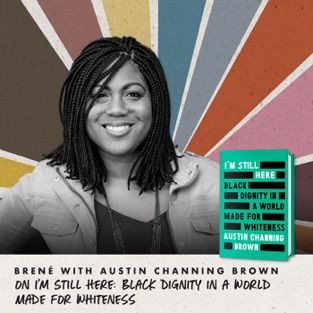 Unlocking Us Podcast–Brené with Austin Channing Brown on I’m Still Here: Black Dignity in a World Made for Whiteness — Austin Channing Brown’s anti-racism work is critical to changing our world, and her ability to talk about what is good and true about love, about our faith, and about loving each other is transformative. She is a writer, a speaker, and a media producer providing inspired leadership on racial justice in America. In this episode, we connect on her book I’m Still Here: Black Dignity in a World Made for Whiteness, and talk about her online television show, The Next Question [Podcast episode: 1 hr 4 min]
Unlocking Us Podcast–Brené with Austin Channing Brown on I’m Still Here: Black Dignity in a World Made for Whiteness — Austin Channing Brown’s anti-racism work is critical to changing our world, and her ability to talk about what is good and true about love, about our faith, and about loving each other is transformative. She is a writer, a speaker, and a media producer providing inspired leadership on racial justice in America. In this episode, we connect on her book I’m Still Here: Black Dignity in a World Made for Whiteness, and talk about her online television show, The Next Question [Podcast episode: 1 hr 4 min]
Books
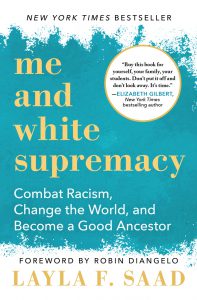 Me and White Supremacy — This eye-opening book challenges you to do the essential work of unpacking your biases, and helps white people take action and dismantle the privilege within themselves so that you can stop (often unconsciously) inflicting damage on people of color, and in turn, help other white people do better, too. [Book 256 pages]
Me and White Supremacy — This eye-opening book challenges you to do the essential work of unpacking your biases, and helps white people take action and dismantle the privilege within themselves so that you can stop (often unconsciously) inflicting damage on people of color, and in turn, help other white people do better, too. [Book 256 pages]
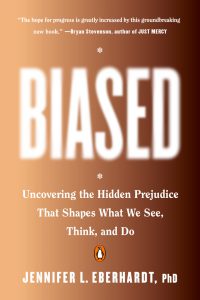 Biased — How do we talk about bias? How do we address racial disparities and inequities? What role do our institutions play in creating, maintaining, and magnifying those inequities? What role do we play? With a perspective that is at once scientific, investigative, and informed by personal experience, Dr. Jennifer Eberhardt offers us the language and courage we need to face one of the biggest and most troubling issues of our time. [Book 368 pages]
Biased — How do we talk about bias? How do we address racial disparities and inequities? What role do our institutions play in creating, maintaining, and magnifying those inequities? What role do we play? With a perspective that is at once scientific, investigative, and informed by personal experience, Dr. Jennifer Eberhardt offers us the language and courage we need to face one of the biggest and most troubling issues of our time. [Book 368 pages]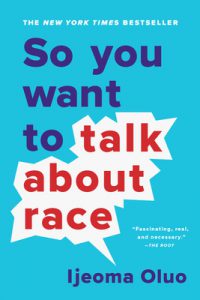 So You Want to Talk About Race — This book guides readers of all races through subjects ranging from intersectionality and affirmative action to “model minorities” in an attempt to make the seemingly impossible possible: honest conversations about race and racism, and how they infect almost every aspect of American life. [Book 272 pages]
So You Want to Talk About Race — This book guides readers of all races through subjects ranging from intersectionality and affirmative action to “model minorities” in an attempt to make the seemingly impossible possible: honest conversations about race and racism, and how they infect almost every aspect of American life. [Book 272 pages]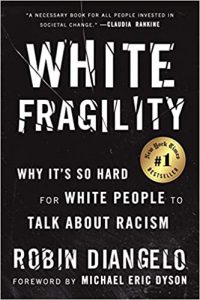 White Fragility — Referring to the defensive moves that white people make when challenged racially, white fragility is characterized by emotions such as anger, fear, and guilt, and by behaviors including argumentation and silence. These behaviors, in turn, function to reinstate white racial equilibrium and prevent any meaningful cross-racial dialogue. In this in-depth exploration, DiAngelo examines how white fragility develops, how it protects racial inequality, and what we can do to engage more constructively. [Book 192 pages]
White Fragility — Referring to the defensive moves that white people make when challenged racially, white fragility is characterized by emotions such as anger, fear, and guilt, and by behaviors including argumentation and silence. These behaviors, in turn, function to reinstate white racial equilibrium and prevent any meaningful cross-racial dialogue. In this in-depth exploration, DiAngelo examines how white fragility develops, how it protects racial inequality, and what we can do to engage more constructively. [Book 192 pages]
